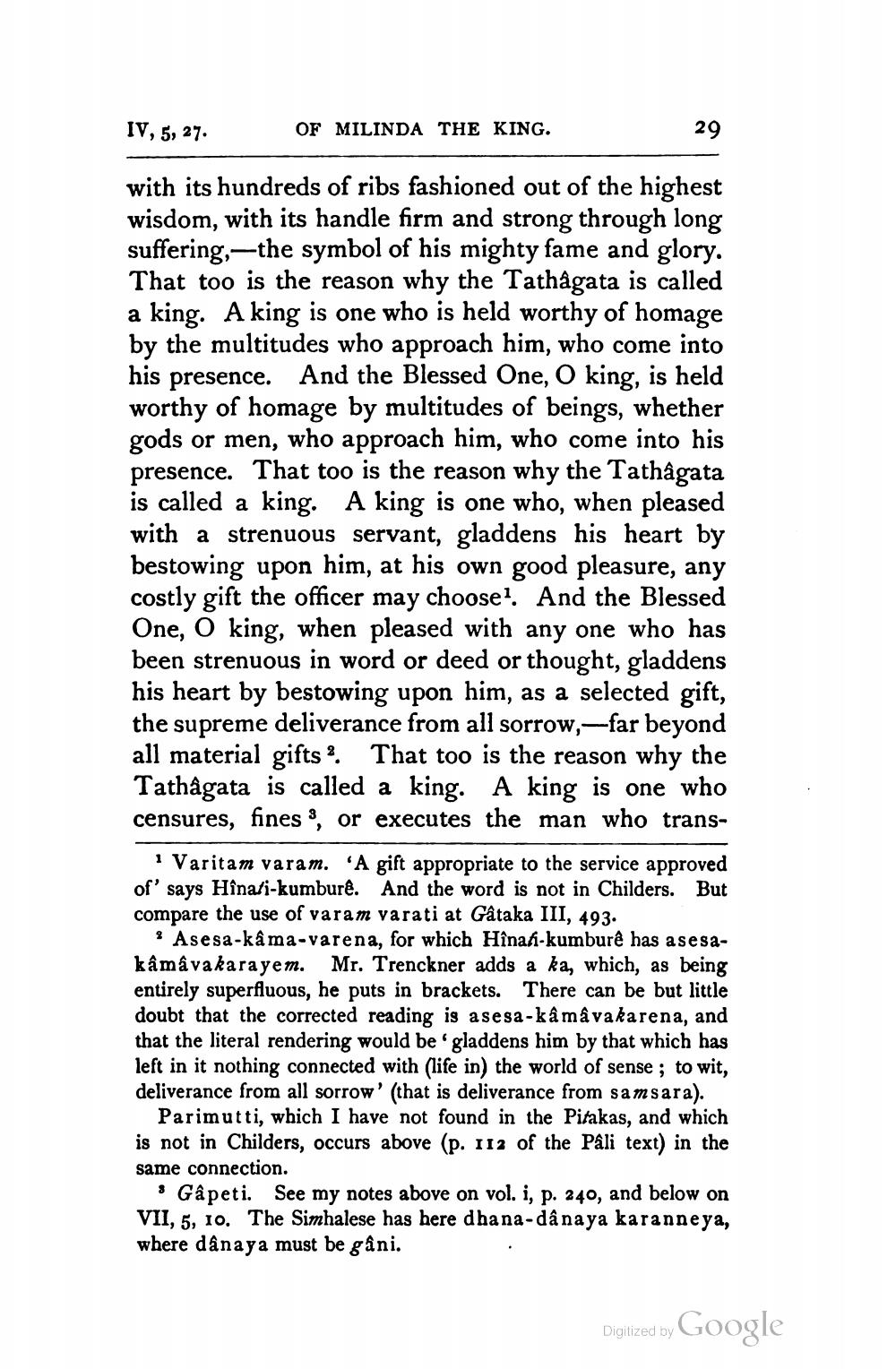________________
IV, 5, 27.
OF MILINDA THE KING.
29
with its hundreds of ribs fashioned out of the highest wisdom, with its handle firm and strong through long suffering,—the symbol of his mighty fame and glory. That too is the reason why the Tathagata is called a king. A king is one who is held worthy of homage by the multitudes who approach him, who come into his presence. And the Blessed One, O king, is held worthy of homage by multitudes of beings, whether gods or men, who approach him, who come into his presence. That too is the reason why the Tathagata is called a king. A king is one who, when pleased with a strenuous servant, gladdens his heart by bestowing upon him, at his own good pleasure, any costly gift the officer may choosel. And the Blessed One, O king, when pleased with any one who has been strenuous in word or deed or thought, gladdens his heart by bestowing upon him, as a selected gift, the supreme deliverance from all sorrow,-far beyond all material gifts. That too is the reason why the Tathagata is called a king. A king is one who censures, fines, or executes the man who trans
1 Varitam varam. A gift appropriate to the service approved of' says Hînali-kumbure. And the word is not in Childers. But compare the use of varam varati at Gataka III, 493.
? Asesa-kama-varena, for which Hînafi-kumburê has asesakâmâvakarayem. Mr. Trenckner adds a ka, which, as being entirely superfluous, he puts in brackets. There can be but little doubt that the corrected reading is asesa-kâ mâ vakarena, and that the literal rendering would be gladdens him by that which has left in it nothing connected with (life in) the world of sense ; to wit, deliverance from all sorrow' (that is deliverance from samsara).
Parimutti, which I have not found in the Pitakas, and which is not in Childers, occurs above (p. 112 of the Páli text) in the same connection.
Gâpeti. See my notes above on vol. I, p. 240, and below on VII, 5, 10. The Simhalese has here dhana-danaya karanneya, where danaya must be gâni.
Digitized by Google




